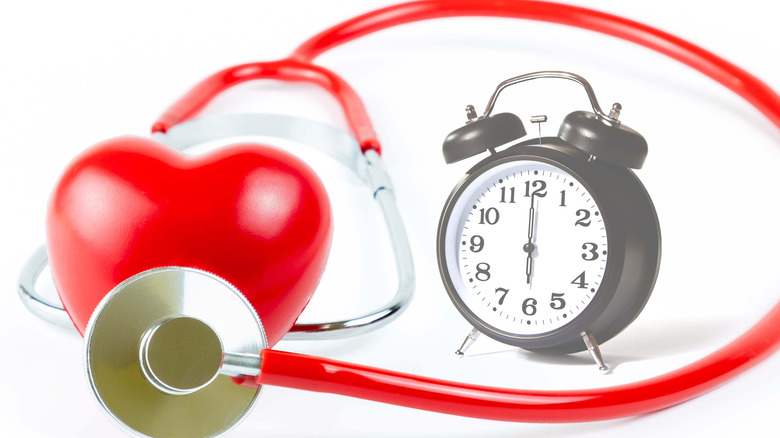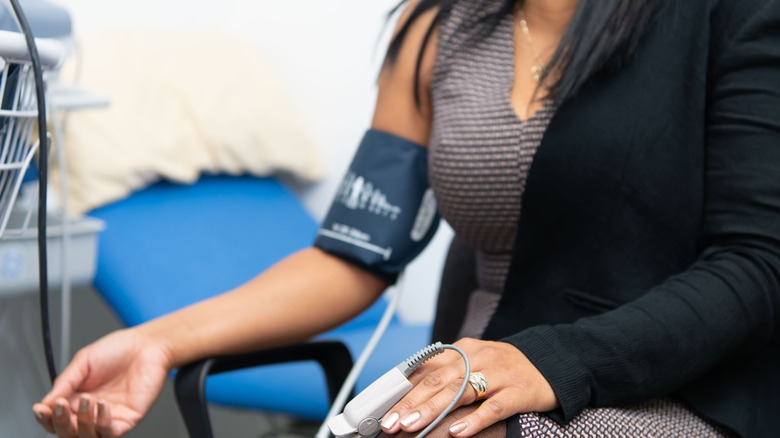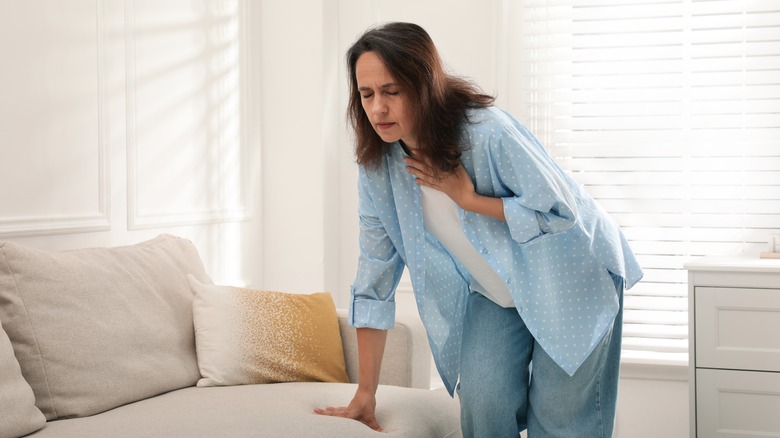How Often Should You Be Checking Your Blood Pressure?
As its name suggests, blood pressure refers to how hard blood presses against the walls of your arteries when being carried from the heart to other body parts. High blood pressure (also known as hypertension) can put a person at risk for heart disease and stroke, which are among the most common causes of death in the United States. Nearly half of American adults have hypertension, and it was a primary or contributing cause of death for more than half a million Americans in 2019 (per the U.S. Centers for Disease Control and Prevention).
High blood pressure is called "the silent killer" for a reason — it typically presents with no symptoms. Fewer than a quarter of Americans with high blood pressure actually have their condition under control, and part of this is because many Americans don't even realize they have it. The only way to find out if you have the condition is to have your blood pressure checked regularly.
This is how often you should check your blood pressure
If you're healthy and younger than 40, the U.S. Department of Health and Human Services (HHS) recommends getting your blood pressure checked at least once every 3-5 years. On the other hand, there are some people who are at higher risk of hypertension, and will want to get their blood pressure checked more often.
The HHS recommends getting your blood pressure tested at least yearly if you're overweight, African American, over the age of 40, or if you have diabetes, kidney failure, or certain types of heart disease. People who smoke, don't get enough exercise, drink too much alcohol, or don't eat a healthy diet will also want to get their blood pressure checked at least once a year.
If you already have high blood pressure, the American Heart Association (AHA) suggests checking your own blood pressure at home at least daily, preferably at the same time each day.
Watch out for these concerning symptoms
While it certainly warrants a trip to the doctor, high blood pressure alone doesn't mean you need to go to the emergency room. However, there are cases where this condition may be accompanied by chest pain, confusion, difficulty speaking, weakness in one arm, and other symptoms that require emergency care, says the University of Utah.
Also, call 911 if you have high blood pressure (180/120 or higher) and severe headaches, chest pain, confusion, unresponsiveness, nausea, seizures, shortness of breath, or vision problems. These symptoms may indicate a hypertensive crisis, which can be life-threatening, warns the Mayo Clinic.
You'll also want to relax for five minutes and then check your blood pressure again if you ever notice a reading of 180/120 or higher and you aren't experiencing other symptoms. If it remains just as high, then it's time to seek medical attention.
Most doctors will prescribe drugs to lower your blood pressure and keep it within normal limits, notes WebMD. If you forget to take your meds or decide to stop using them altogether, you may experience a hypertensive crisis. This condition may also result from drug interactions or a tumor in the adrenal gland, according to the Mayo Clinic.
Given these risks, it makes sense to check your blood pressure as soon as possible if you experience any unusual symptoms. High blood pressure accompanied by concerning symptoms could be a sign of something serious — and may warrant a trip to the ER.



